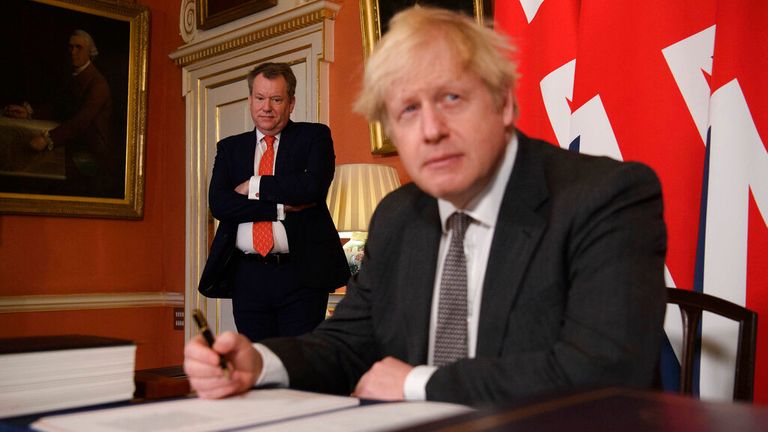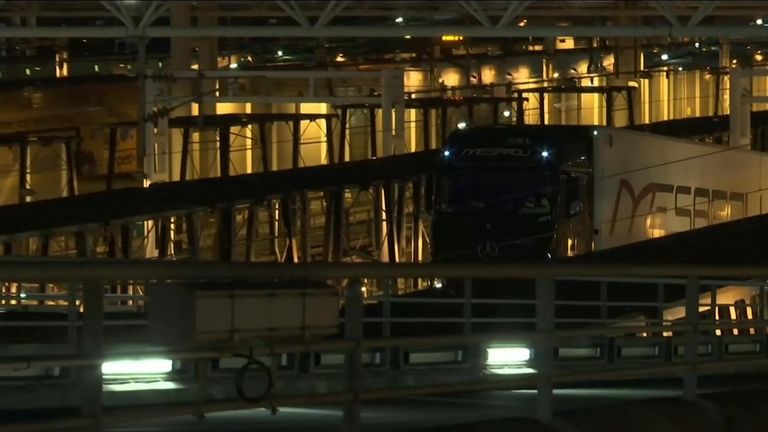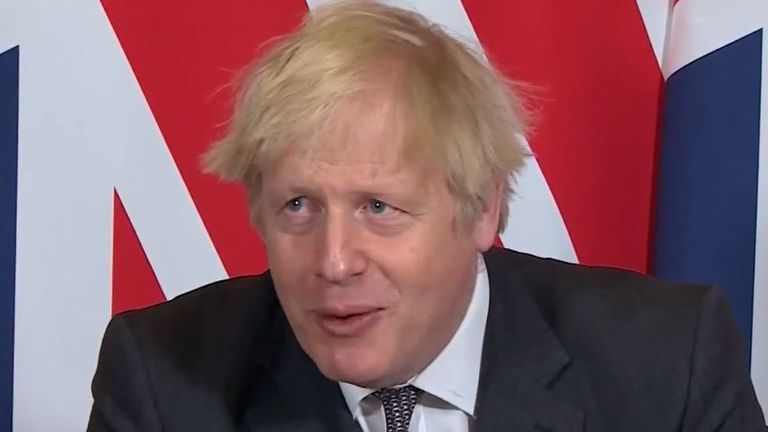
New post-Brexit customs rules for goods arriving in Britain from the European Union have come into effect, changes that a leading food industry body has warned could cause disruption and potentially lead to food shortages.
Importers must now make full customs declarations on goods entering the UK from the EU and other countries.
Traders can no longer delay completing full import customs declarations for up to 175 days.
Businesses will have to complete the right paperwork at least four hours before the goods can arrive, or they risk being turned back.
Animal and plant-based products will also have to have statements of origin certificates.
Checks are initially expected to be minimal, before being ramped up in July.
Concern ‘not enough planning has been done’
The UK imports five times the amount of food it exports to the EU, meaning any disruption could have wide-ranging knock-on effects.
This has led the British Frozen Food Federation to warn that January could be a “fraught” month for its members, with the potential for delays at ports.
“We are concerned that not enough planning has been done to ensure the new requirements are understood by everyone in the food supply chain,” said chief executive Richard Harrow.
“With only days to go before the new rules, we remain concerned that January could be a fraught month for our members,” he said.
Another change that has taken effect concerns roaming charges on mobile phones.
EE and Vodafone, two of the UK’s biggest networks, have reintroduced them for customers travelling to Europe, while Three is set to bring them back in May.
PM vows to ‘maximise the benefits’ of Brexit
The developments come a year to the day since the UK’s post-Brexit free trade deal with the EU came into force.
In comments to mark the anniversary, Prime Minister Boris Johnson has promised to “maximise the benefits” of Britain’s departure from the bloc, which also entailed leaving its single market and customs union.
The PM pledged that his government would “go further and faster” in taking advantage of the “enormous potential that our new freedoms bring”.
Mr Johnson said he wanted to “cut back on EU red tape” and restore “common sense to our rulebooks”.
Retained EU law under the microscope
Officials are reviewing thousands of EU-made regulations which have been automatically retained post-Brexit, to ensure they continue to benefit the UK.
Any that do not face the prospect of being changed or scrapped.
The Daily Telegraph reports that one law that could be axed is a ban on pint-sized bottles of champagne.
This would reverse a restriction against imperial measurements of sparkling wine that has been in place since Britain joined the common market, a precursor to the EU, back in 1973.
In addition to this examination of retained EU law, officials say work is taking place across government departments to identify areas where the UK can take the lead, such as artificial intelligence, self-driving cars, reforming data rights and reforming medical devices regulation.








More Stories
Inspiring Change: Michael Bates Path to Entrepreneurship and Giving Back
Climate Token YES WORLD is now available for trading on top crypto change LaToken
An Exclusive Interview with the Young & Dynamic Entrepreneur, Roberto.